“How They Succeeded: Life Stories of Successful Men Told by Themselves” by Orison Swett Marden is a collection of inspirational stories and interviews with successful people from various fields in the early 20th century. The book aims to share the principles, habits, and attitudes that contributed to their success, providing readers with practical lessons and motivation to achieve their own goals.
Listen in Audio Format
Introduction: The Pursuit of Success

Marden introduces the book by discussing the universal desire for success and the importance of learning from those who have achieved it. He argues that success is not a matter of luck but the result of hard work, perseverance, and the right mindset. The stories in the book are meant to serve as both inspiration and practical guidance.
By studying the lives of successful individuals, we can learn valuable lessons that can be applied to our own lives, helping us overcome obstacles and reach our goals.
Chapter 1: Andrew Carnegie – The Power of Persistence
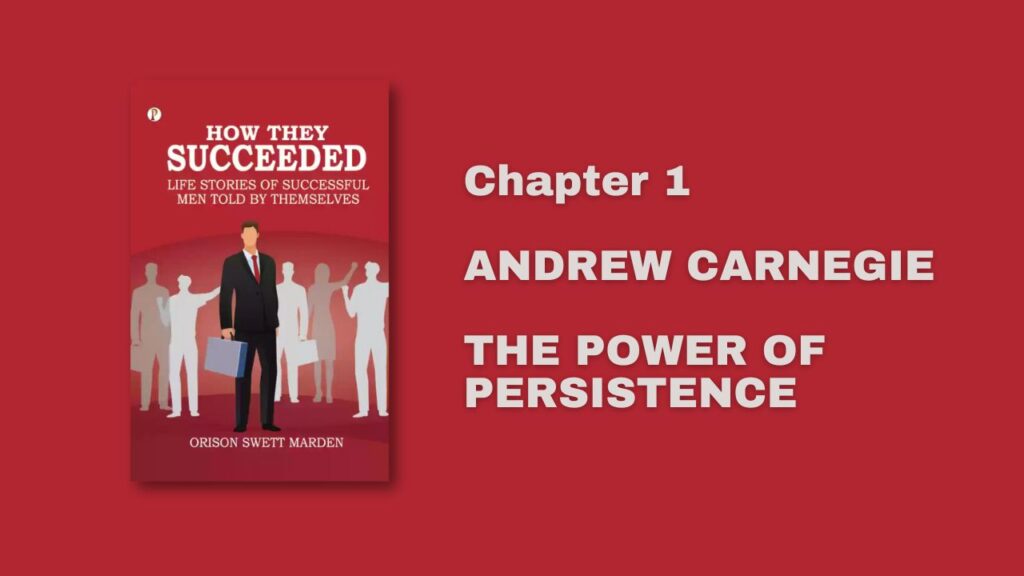
Andrew Carnegie, one of the wealthiest industrialists of his time, shares his journey from a poor immigrant to a steel magnate. Carnegie emphasizes the importance of persistence, hard work, and continuous learning in his success.
- Key Lessons:
- Persistence: Carnegie faced numerous challenges but never gave up. He believed that persistence was key to overcoming obstacles and achieving long-term success.
- Continuous Learning: Carnegie was a lifelong learner, always seeking to improve his knowledge and skills. He encouraged others to invest in their education and personal development.
Chapter 2: John D. Rockefeller – The Value of Integrity and Prudence
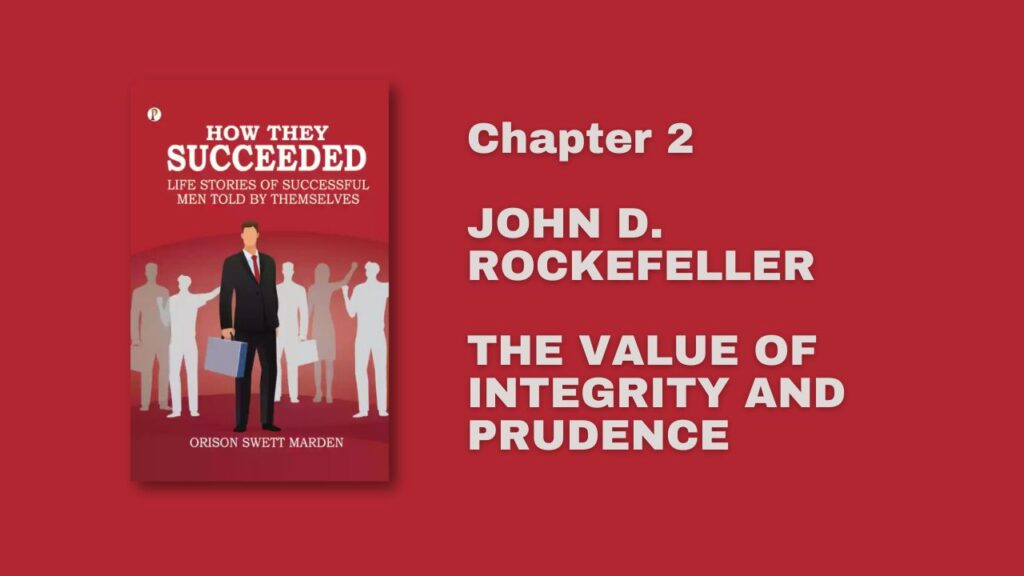
John D. Rockefeller, the founder of Standard Oil, discusses the role of integrity, careful planning, and financial prudence in his rise to becoming one of the richest men in the world. Rockefeller highlights the importance of ethical business practices and wise investment.
- Key Lessons:
- Integrity: Rockefeller believed that maintaining honesty and ethical standards was crucial for long-term success in business.
- Prudence: He advocated for careful financial management, avoiding unnecessary risks, and making thoughtful investments.
Chapter 3: Thomas Edison – The Importance of Innovation and Hard Work
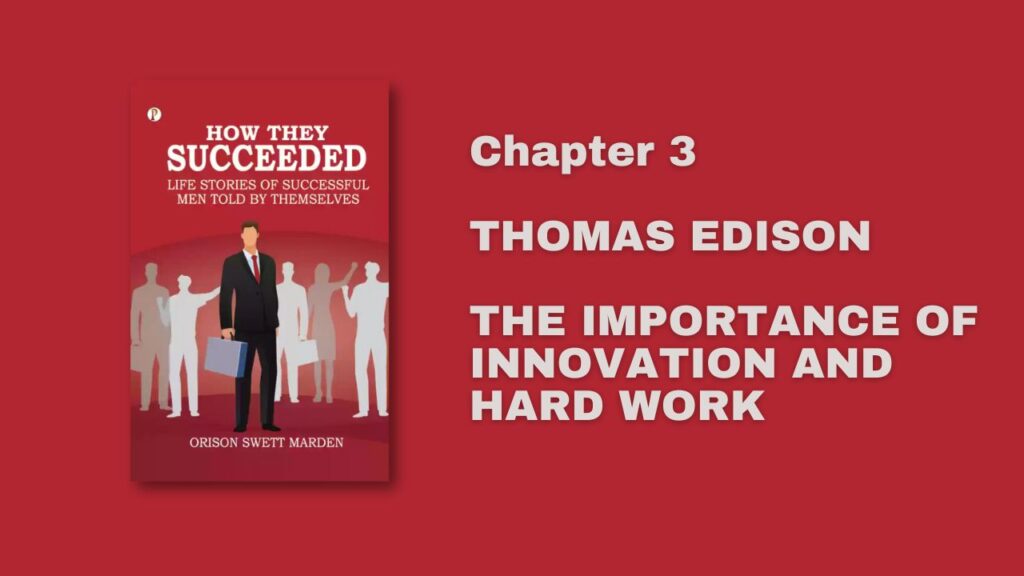
Thomas Edison, the famous inventor, shares his story of relentless experimentation and innovation. Edison is known for his incredible work ethic and his belief that genius is “1% inspiration and 99% perspiration.”
- Key Lessons:
- Innovation: Edison constantly sought to improve existing technologies and create new ones, showing that innovation is a key driver of success.
- Hard Work: Edison’s work ethic was legendary. He believed that success comes to those who are willing to put in the effort and keep trying, even after repeated failures.
Chapter 4: Alexander Graham Bell – The Role of Curiosity and Dedication
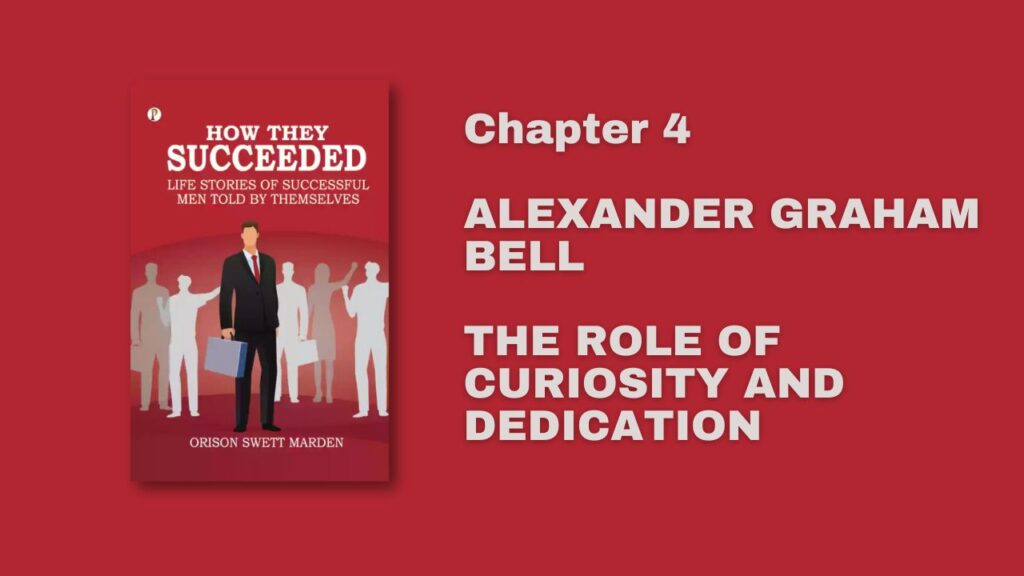
Alexander Graham Bell, the inventor of the telephone, talks about how his curiosity and dedication to helping the deaf led to one of the most significant inventions of his time. Bell’s story highlights the importance of following one’s passions and staying dedicated to one’s goals.
- Key Lessons:
- Curiosity: Bell’s curiosity about sound and communication led him to explore new ideas and ultimately invent the telephone.
- Dedication: He was deeply committed to his work, often spending long hours experimenting and refining his inventions.
Chapter 5: Marshall Field – The Importance of Customer Service

Marshall Field, the founder of the famous department store, emphasizes the importance of putting the customer first. Field’s success in retail was built on his commitment to providing excellent customer service and high-quality products.
- Key Lessons:
- Customer Service: Field believed that treating customers well and exceeding their expectations was essential for building a successful business.
- Quality: He was dedicated to offering only the best products, understanding that quality would build customer loyalty and trust.
Chapter 6: Theodore Roosevelt – The Power of Energy and Initiative
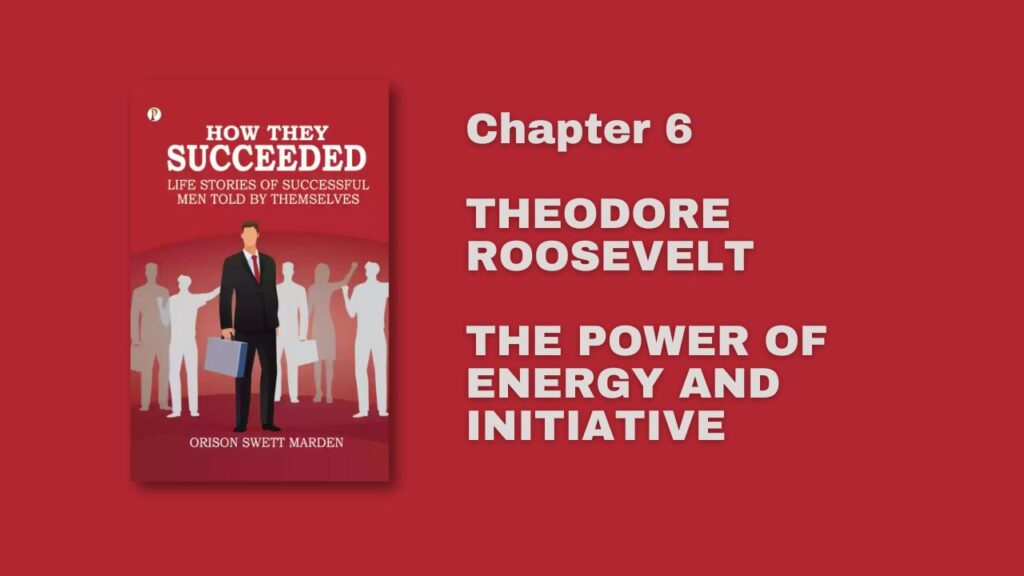
Theodore Roosevelt, the 26th President of the United States, shares his belief in the power of energy, initiative, and a proactive approach to life. Roosevelt’s story is one of overcoming personal challenges and using his boundless energy to achieve great things.
- Key Lessons:
- Energy: Roosevelt was known for his incredible vitality and enthusiasm for life. He believed that having a strong, energetic approach to challenges was crucial for success.
- Initiative: Roosevelt often took the lead in projects and wasn’t afraid to take risks. His proactive attitude helped him accomplish a great deal in his political and personal life.
Chapter 7: Henry Ward Beecher – The Impact of Optimism and Faith

Henry Ward Beecher, a prominent clergyman and social reformer, discusses the importance of optimism and faith in achieving success. Beecher’s positive outlook and strong belief in the goodness of people guided his work and made him a powerful influence in his time.
- Key Lessons:
- Optimism: Beecher believed that maintaining a positive attitude, even in difficult times, was essential for success.
- Faith: He had a strong faith in his values and principles, which helped him stay focused and driven in his pursuits.
Chapter 8: P.T. Barnum – The Power of Marketing and Showmanship
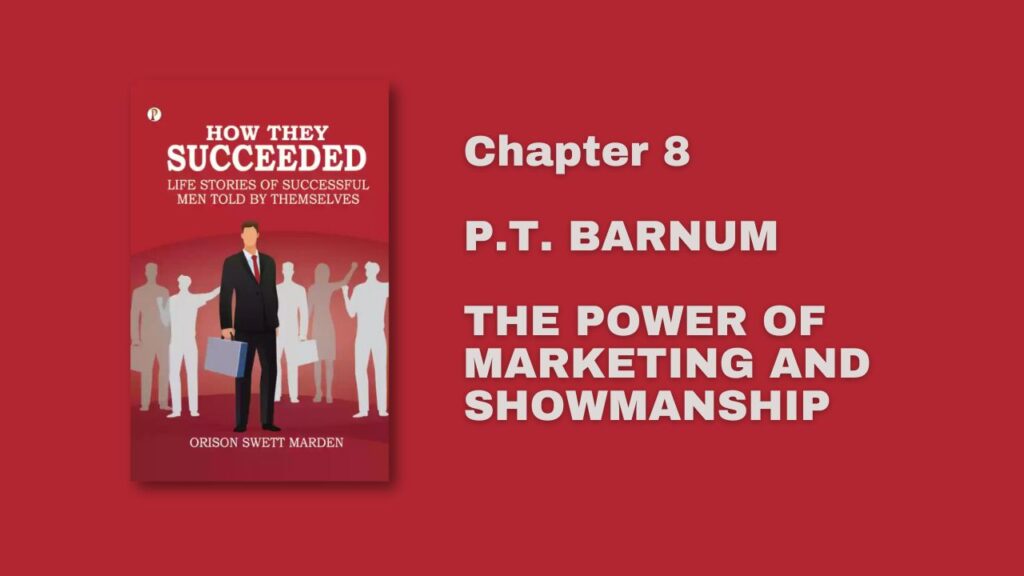
P.T. Barnum, the famous showman and founder of Barnum & Bailey Circus, shares how his success was built on his understanding of marketing, showmanship, and giving people what they wanted. Barnum was a master of creating excitement and drawing crowds.
- Key Lessons:
- Marketing: Barnum understood the power of publicity and knew how to create buzz around his shows and attractions.
- Showmanship: He was a natural showman, always looking for ways to entertain and engage his audience, which was key to his success in the entertainment industry.
Chapter 9: Cyrus W. Field – The Importance of Perseverance and Vision
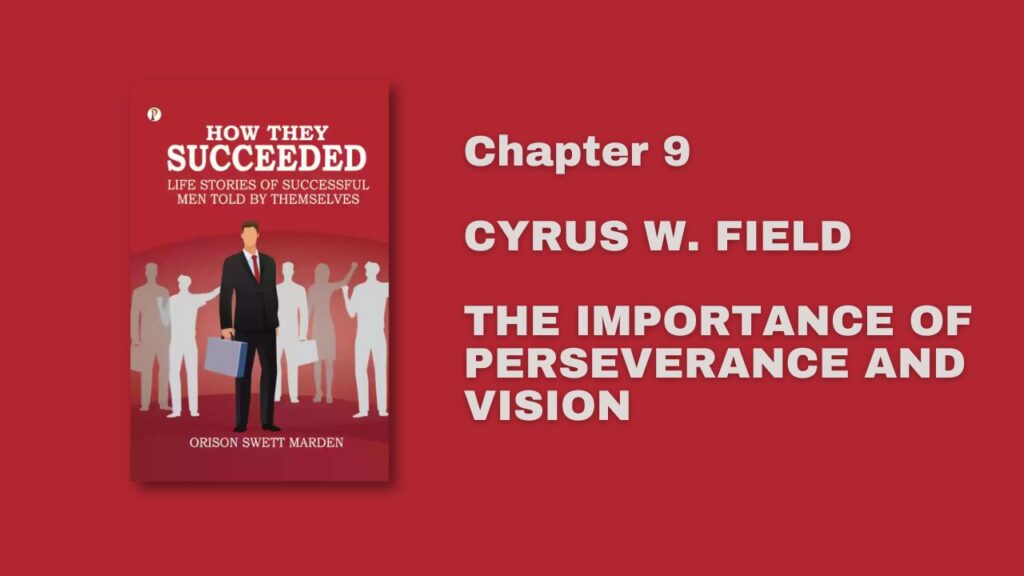
Cyrus W. Field, the man behind the first transatlantic telegraph cable, talks about the importance of perseverance and having a clear vision. Field’s story is one of incredible determination, as he faced numerous failures before finally succeeding in connecting Europe and America by telegraph.
- Key Lessons:
- Perseverance: Field’s determination to see his project through, despite repeated failures, is a testament to the power of perseverance.
- Vision: He had a clear vision of what he wanted to achieve, which kept him motivated and focused, even in the face of daunting challenges.
Chapter 10: Philip D. Armour – The Role of Efficiency and Innovation
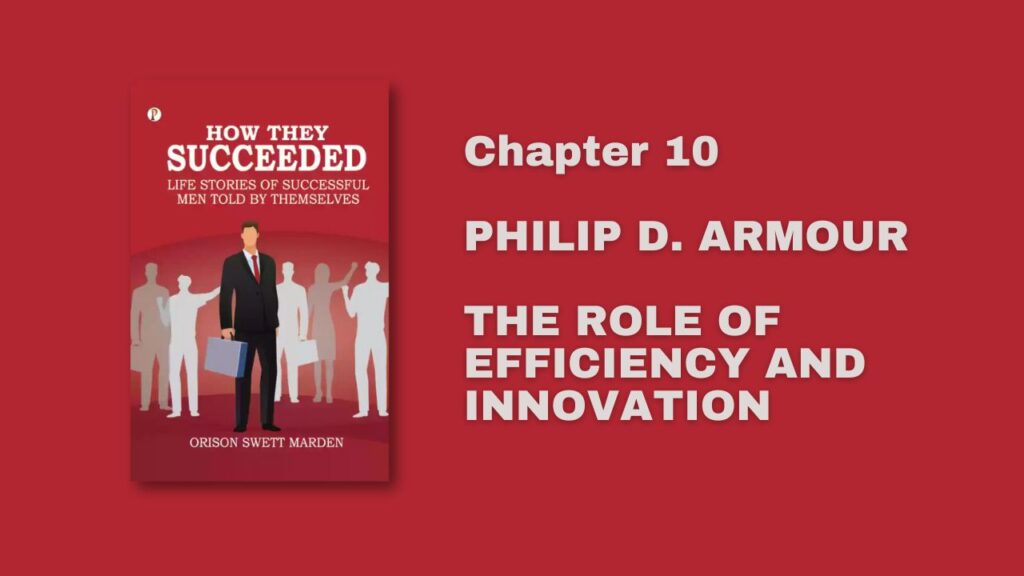
Philip D. Armour, a pioneer in the meatpacking industry, discusses how efficiency and innovation were key to his success. Armour’s business practices revolutionized the industry and set new standards for productivity and quality.
- Key Lessons:
- Efficiency: Armour focused on streamlining operations and improving efficiency, which allowed his company to thrive.
- Innovation: He was always looking for new ways to improve his business, from better production methods to more effective distribution systems.
Chapter 11: James J. Hill – The Importance of Long-Term Planning
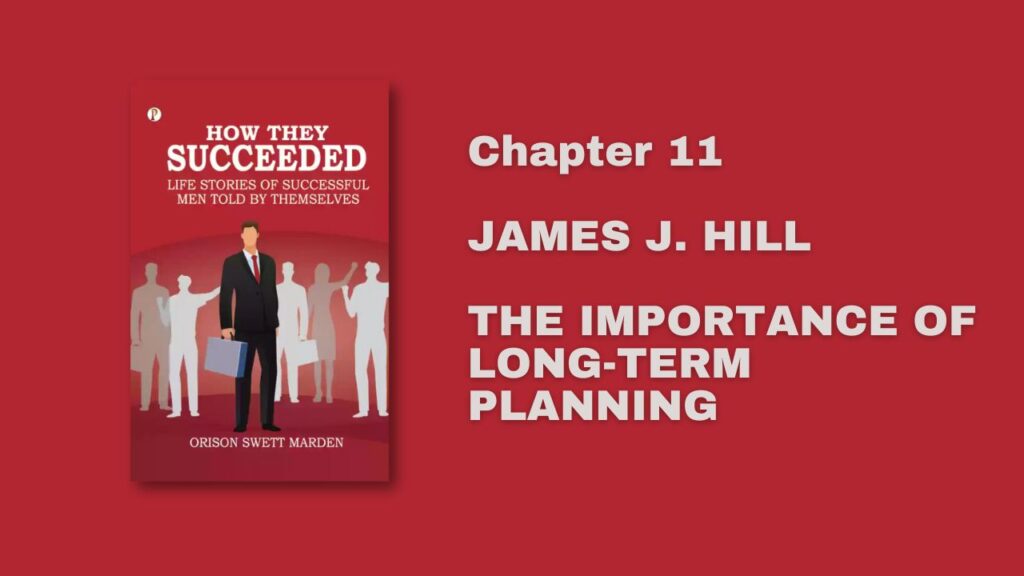
James J. Hill, known as the “Empire Builder” for his role in expanding the American railroad system, talks about the importance of long-term planning and careful execution. Hill’s success was built on his ability to see the big picture and plan for the future.
- Key Lessons:
- Long-Term Planning: Hill believed in planning for the long term, understanding that success often comes from sustained efforts over time.
- Execution: He was meticulous in executing his plans, ensuring that every detail was considered and managed effectively.
Conclusion: Common Traits of Success
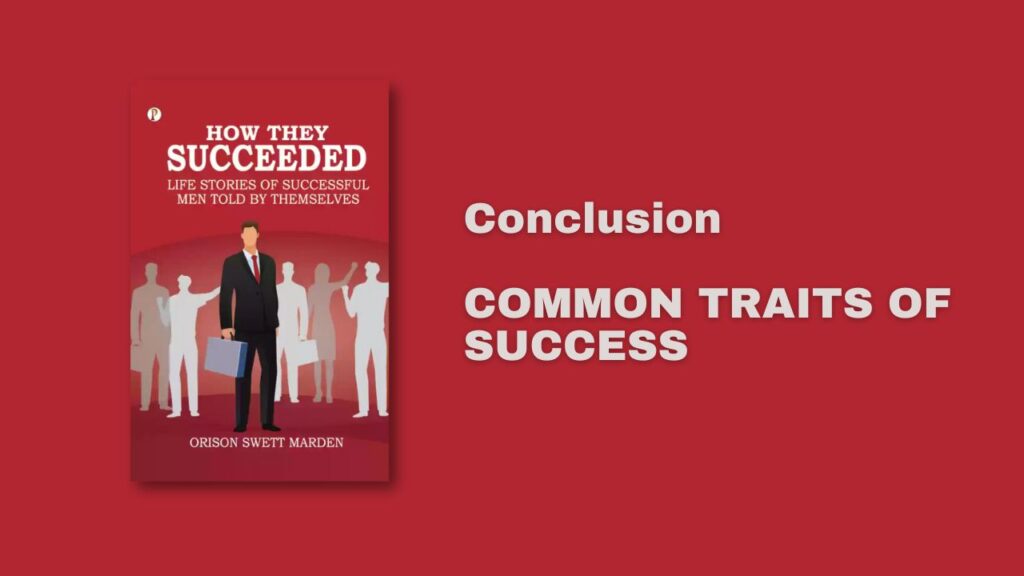
Marden concludes the book by summarizing the common traits and principles that contributed to the success of the individuals profiled. These include persistence, integrity, innovation, customer focus, energy, optimism, perseverance, efficiency, and long-term planning.
Success is not reserved for the lucky few but is achievable by anyone willing to work hard, stay focused, and learn from the experiences of others. The stories in the book demonstrate that with the right mindset and habits, anyone can overcome obstacles and achieve their goals.
“How They Succeeded” is a timeless collection of success stories that offers valuable insights into the traits and habits that lead to greatness. By learning from these stories, readers can gain inspiration and practical advice to apply in their own lives, helping them achieve their own version of success.
Read The Complete Book

Read More Books Summary
Think Like a Monk
By Jay Shetty
Unfu*k Yourself
By Gary John Bishop
22 Immutable Laws of Marketing
By AL Ries & Jack Trout
The Subtle Art of Not Giving a Fu*k
By Mark Manson
The Secret
By Rhonda Byrne
Think Like an Entrepreneur
By Beverly E. Jones
The 48 Laws of Power
By Robert Greene
Thinking Fast and Slow
By Daniel Kahneman









